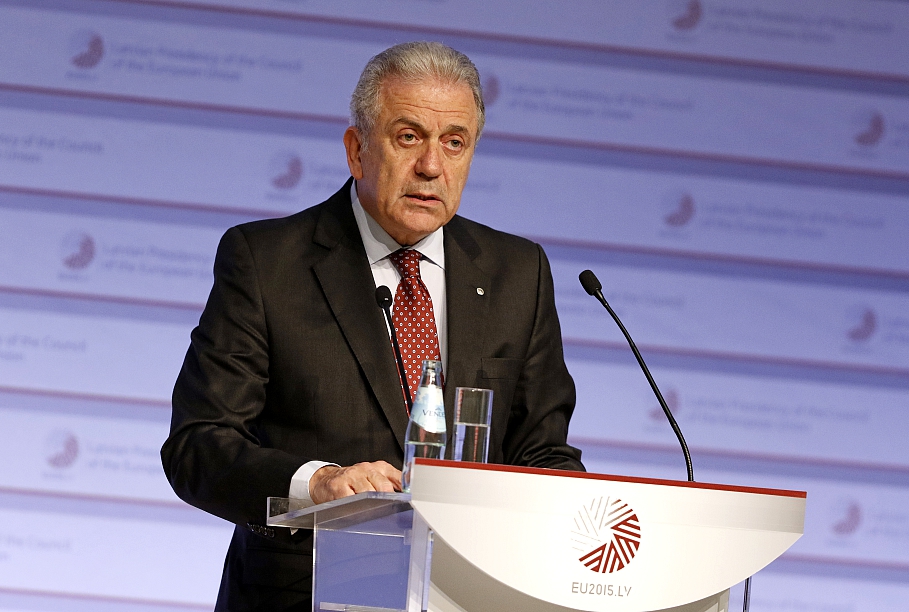Following the meeting, EU Commissioner for Migration, Home Affairs and Citizenship Dimitris Avramopoulos told reporters:
"We have to be more proactive in monitoring suspicious movements across borders."
Better information sharing would enable “identification of travel routes of terrorism” he said.
“An EU passengers' name record directive is necessary. It is necessary to enhance substantially the security of all people living in Europe,” Avramopoulos said.
Another requirement would be a new understanding with “key players of the internet industry to discuss the challenges posed by online terrorist propaganda,” Avramopoulos said.
“It is vital that member states work further at national level to tackle illegal content online,” he said.
A joint statement released by ministers from all 28 countries said "a targeted proposal to amend the Shengen Borders Code is a necessary step to reinforce external borders by making it possible to proceed to systeaic checks on individuals enjoying the right of free movement against databases relevant to the fight against terrorism"
Ministers called on the European Commission to "present its Communication by mid-April 2015 at the latest in order to review and update EU Internal Security Strategy by mid 2015."
The move came on the same day the Latvian parliament approved a first reading of draft amendments criminalizing unauthorized participation in armed conflicts in foreign countries, the BNS newswire reported.
The draft legislation would also make financing of such conflicts, as well as recruiting, training and sending people for participation in such conflicts a criminal offense.
Under existing legislation, Latvian nationals can be called to account for a criminal offenses committed in a foreign country but the law does not define criminal liability specifically for active involvement in armed conflicts in foreign countries, which means that the Latvian authorities lack legal grounds for restricting such persons' freedom of movement or for their prosecution.





























